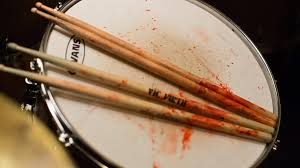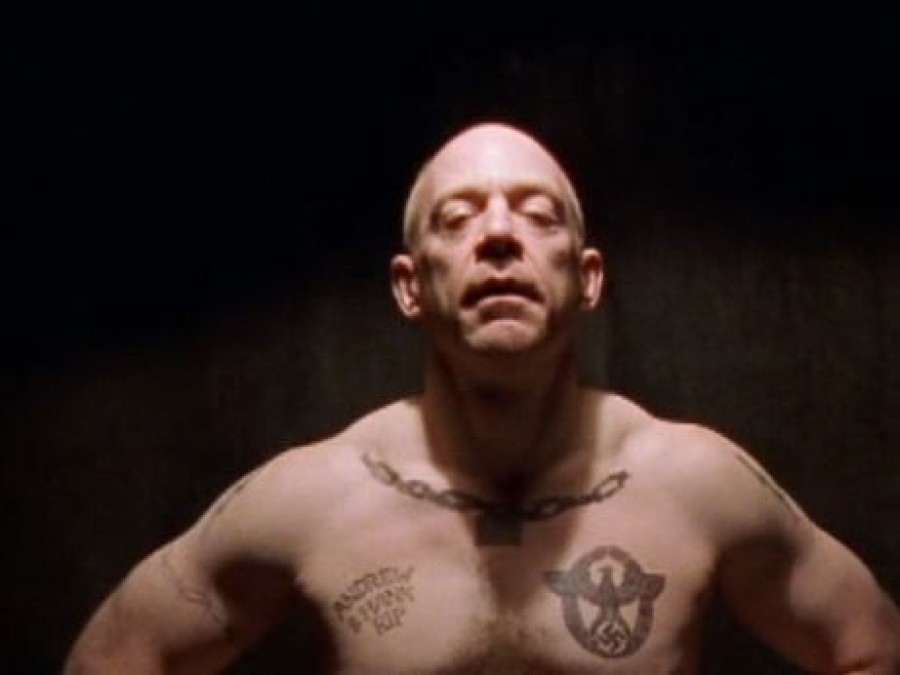I hated, hated, hated, hated, hated this movie
By Jim DeRogatis

I hated, hated, hated, hated, hated this movie
By Jim DeRogatis
“So, what did you think of Whiplash?”
As a drummer, as a music critic, and as a sometimes curator of great films about music (via the occasional Sound Opinions movie nights), it’s a logical question to toss my way, and I started getting it long before J.K. Simmons took home the Oscar for Best Supporting Actor Sunday night, when the film began its limited art-house run last fall. My answer, then as now:
I hated, hated, hated, hated, hated this movie.
I do not invoke my heroic former colleague Roger Ebert’s infamous assessment of North lightly. While I never discussed that review with him, it should be obvious to anyone who reads it that his problems with the 1994 movie go far deeper than what he calls a lapse in director Rob Reiner’s usual skills as a filmmaker—“To call it manipulative would be inaccurate; it has an ambition to manipulate, but fails”—striking at the core theme that parents should slavishly dote on their child prodigy or face dire consequences. The notion that any child would “lightly separate from their [loving but human] parents” is what really prompted Ebert to declare that he “hated the sensibility that thought anyone would like [the movie], hated the implied insult to the audience by its belief that anyone would be entertained by it.”
So it is with me and Whiplash.
While Simmons is undeniably impressive playing a brutal fascist even more monstrous than the character he portrayed in Oz crossed with a drill instructor even more sadistic than the one R. Lee Ermey played in Full Metal Jacket, to think that this man has anything at all to contribute to the act of music-making stretches credulity past the breaking point. This is a film that mistakes excelling in the arts with the competitive mindset that “winning isn’t everything, it’s the only thing”—which ain’t even true in sports, at least when they are pursued the way they should be (and shame on any of you Little League coaches who stray from that ideal).

As Tony Scott wrote in The New York Times: “This story of an ambitious young striver and his difficult mentor could easily have been a sports movie, and structurally, it resembles one. There are montages of grueling practice scattered among scenes of tense competition, all of it building toward a hugely suspenseful (but also, to some extent, never in doubt) championship game moment of reckoning.” Added Anthony Lane in The New Yorker: “Whether Whiplash tells us much about music, despite a fine rendition of Duke Ellington’s ‘Caravan,’ I’m not sure. It’s more about power than it is about jazz, and the fetishistic close-ups—of blood and flying sweat, as well as of tears—suggest a blend of boot camp, football coaching, and pornography.”
Verisimilitude allegedly was important to writer and director Damien Chazelle, who based Simmon’s hard-ass conductor at a New York conservatory on his time with the relentless music teacher who led the Princeton High School Studio Band in New Jersey. He even cast a real drummer, Miles Teller, as the driven jazz student, then made him take several months of lessons to get the playing exactly “right.” But many, many details are embarrassingly wrong.
A few of note: the alleged reverence with which Teller’s Andrew Neiman holds Buddy Rich (a showboating bully with bountiful chops but little creative genius); the drums and cymbals themselves, which are off-brands that might be seen in a school rehearsal room but certainly not at Lincoln Center; all of that blood (only a drummer who doesn’t really know how to play or hold his sticks would spray those geysers of gore all over his cymbals), and, most importantly, the story that provides the central metaphor for the film and the justification for Simmons hurling a folding chair at his student, WWE-style.

As noted by many jazz historians (here and here, to cite just two examples), Papa Jo Jones never threw a Zildjian at Charlie Parker’s head with the aim of decapitating him; he tossed a cymbal at Bird’s feet to playfully “gong” him when the sax giant was lost in a free-flying solo. And flying—together, in collaboration and communication with others, not in macho moments of solo glory—is the only reason to play jazz, or indeed, any music. I’ve never met any teacher or conductor whose primarily goal isn’t to instill that love of music. Here’s jazz drumming great and musical educator Peter Erskine on the subject:
“I’ve played under the baton of stern and demanding conductors, as well as the critical ears of some pretty tough bandleaders. I’ve always experienced equal amounts of praise and criticism from the toughest of them. A conductor or bandleader will only get good results if he or she shows as much love or enthusiasm as the discipline or toughness they dole out… I’m disappointed that any viewer of the film will not see the joy of music-making that’s almost always a part of large-ensemble rehearsals and performances. Musicians make music because they LOVE music. None of that is really apparent in the film, in my opinion.”
Note that Erskine lauds equal measures of love and enthusiasm, discipline and toughness. Innumerable cultural think pieces over the last decade have rightly criticized the millennial-parental mindset of “everybody gets a trophy.” And Simmons’ Terence Fletcher deftly skewers the kind of thinking that leads only to universal mediocrity: “There are no two words in the English language more harmful than ‘good job.’”
In the end, though, Fletcher/Simmons produces a drum machine, not a musician, an artist, or a better human being. Virtuosity and technical excellence devoid of personality and self-expression—that ineffable quality we call “soul”—is meaningless. And because of that, Whiplash, a 106-minute look at the act of making music, ultimately is one of the most anti-music, anti-art films I’ve ever seen. So no, “hate” is not too strong a word.
Follow me on Twitter @JimDeRogatis, join me on Facebook, and podcast or stream Sound Opinions.

